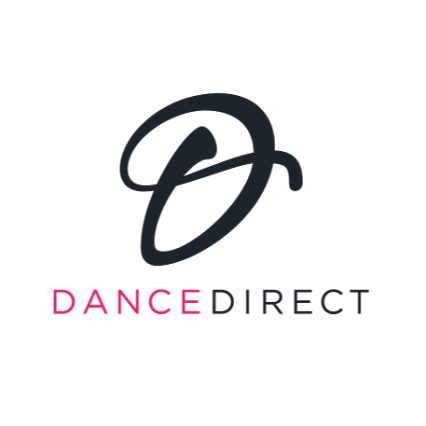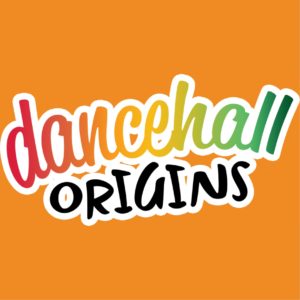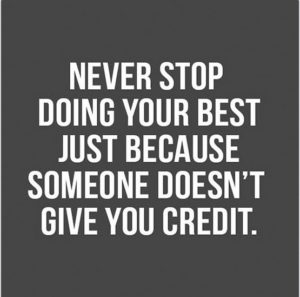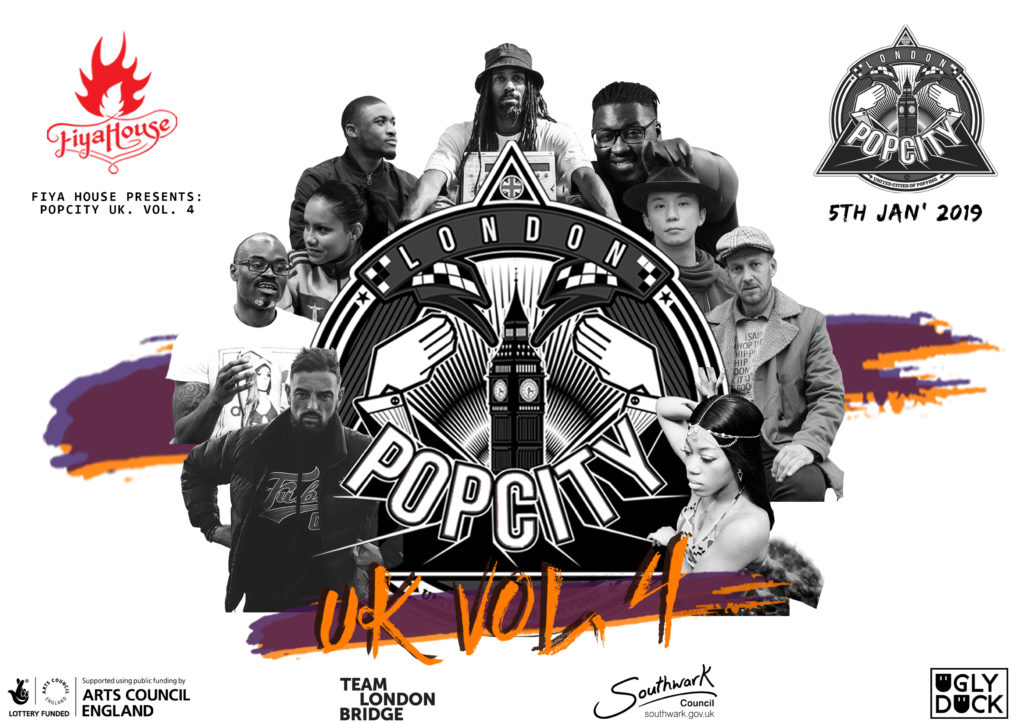Through Ariane Oiticica’s excellent PR work for Fiya House’s Popcity UK vol.4, I was interviewed for a blog feature on Dance Direct in December 2018.
Visit the blog page here or read my answers below.
Have you always wanted to be involved in dance?
Definitely. I’ve been around dance since I was very young – my Nan has had her own dance school in Wolverhampton since she was 14 and she still teaches now (age 89!), she even received a British Empire Medal in 2016 for services to dance and charity. My dance journey started there.
Did you train? What was it like?
I trained at Sheila Groom School of Dance, then at my secondary school through GCSE and A-Level Dance. I did a lot of dance outside of this too, I was in a Hip Hop crew called Dot Co Dot UK and was introduced to Dancehall through my friends.
I went on to study Dance and Culture at the University of Surrey and specialised in Dance of the African Diaspora. I took extra training out in Jamaica and completed a placement at Sadler’s Wells working on the new National Youth Dance Company. My training has been really varied, but has prepared me brilliantly for what I do now.
Describe a day in your life.
My days vary a lot! I’m working on a number of different projects at the moment, so I could be doing anything from:
· Being in a studio watching company rehearsals giving feedback
· Communicating with venues to book tours
· Writing funding applications
· Programming classes and performances
· Arranging logistics for international artists/projects
· Managing project budgets
I also try to go to as many dance performances and classes as I can, to keep myself in the loop as to what’s going on in the sector, and also because I love it!
I’m very lucky to be working with some brilliant artists at the moment, so no two days are ever the same.
What has been the defining moment of your career?
I’m still very early on in my career, so I’m hoping there will be big moments to come! However, if I had to choose something up until now, I would say… setting up my first independent project Dancehall Origins.
Dancehall Origins (or DHO for short) invites dancers, performers and teachers from Jamaica to come to the UK to share Dancehall culture. Since its inception in 2016 I’ve hosted five international events connecting 200 British artists with Dancehall pioneers. Of the seven Jamaican artists who have delivered at DHO, six had never taught in the UK before. This is a huge achievement!
I created the project for a number of reasons, but a key incentive is that there are many people who are interested in Dancehall in this country, who can’t necessarily travel to Jamaica to experience the culture in person. I wanted to find a way to bring Jamaica to the UK, exclusively for sharing knowledge and to build a community that is keen to learn from and celebrate Jamaican artists.
I’m really proud to make Dancehall Origins happen and hope it continues to grow!
What has been the most challenging?
The most challenging moment of my career to date, would be leaving my full-time job at a dance organisation to become Freelance.
At first, I was quite worried about the transition and the prospect of finding clients. Turns out, I need not have worried at all! I’m fortunate to be working with five independent dance artists plus MOVE IT, so I’ve been very busy since I made the leap!
What’s the most rewarding thing about working in dance and with dancers?
One of the most rewarding things is seeing the process and journey that dancers take, and how it changes them as artists. Whether that’s seeing them work with a Composer or a Dramaturg for the first time, or securing a tour date in a brand new venue, or having the audience erupt at the end of a show. Dance can be a really challenging career path, so it’s always important to celebrate the ‘small’ wins and recognise that they have a knock-on effect for any future work.
Another rewarding thing for me, is creating opportunities for whole communities of people, whether they’re dancers or from any other walk of life, to come together through dance and cultural events. Having over 400 people come out for a Hip Hop event like Popcity is a big deal – it’s incredible to see young and old sharing a vibe in the same space, all because of dance.
What’s the worst thing?
I would expect the worst thing for me is the worst thing for many people who work in Performing Arts more generally – managing egos.
In this line of work, sometimes you come up against particularly challenging individuals whose expectations don’t align with the project at hand, or who struggle to see the bigger picture and only consider their own preferences and demands.
There are some incredibly talented people in the world, but at the end of the day everyone is a human being. I always try to foster an environment of mutual respect, so that projects can move forward and the end result is what it needs to be.
Who or what inspires you?
For dance specifically, I would say the brilliant teachers that I’ve had throughout my training. People like Sheila Groom, Nicola Stapleton, ‘H’ Patten and more.
I’m always inspired by artists who are working to make things happen for their communities, particularly in styles that don’t get as much recognition or support as more main-stream forms. Fiya House has been doing brilliant work for the Popping community in the UK since 2012; Andre Bright is devising work internationally that interrogates Black cultural identity; and Duwane Taylor has been pushing the UK Krump scene both underground and on stage for over six years – these are some of the artists I’ve been working with to support their community-focused ambitions. I also want to mention Artists 4 Artists, an inspirational collective that has provided a range of training, commissioning and performance opportunities for Hip Hop dancers since 2016. I think Dancehall Origins ties in to this as well, creating a platform to support the development of Dancehall and its communities in the UK and Jamaica.
Bringing artists together for events like these is a big inspiration and is why I work to help make them happen.
What are you most looking forward to in watching the battles?
It’s really hard to describe the energy and vibe in the room at Popcity! There’s hundreds of people of all ages and levels of experience that are there to compete, support the scene and jam with each other.
The categories feature some truly excellent dancers: I’m always mesmerised by Popping, there’s some brilliant characters that come through in the Afrobeats rounds, Hip Hop gets everybody hyped and the Under 16s are so talented – it’s hard to believe their age!
Popcity is a great way to start the year and we have an incredible line-up of British and international judges. I would go and watch even if I hadn’t worked on it!
What is your advice to an aspiring dancer?
My advice would be to take as many opportunities as you can. Whether that’s extra training, shadowing somebody in an organisation, or anything else that comes your way. It’s said a lot, but the dance world is really small and you never know what an opportunity like that could lead to.
Another key bit of advice is to always ask for help when you need it, and to make sure that you are kind to yourself (and others) – particularly if things don’t go the way you’d hoped.
What’s next for you?
After Popcity, I will still be working with Fiya House to develop a yearly programme of events. I’ve also got Dancehall Origins activity coming up, alongside touring and development work with independent artists Holly Noble, Victor Fung, Duwane Taylor and Andre Bright.
MOVE IT takes place at the ExCel Centre in London 8-10 March with over 260 classes and 150 performances across the three days, and over 25,000 people attending.
I’m hoping to keep working with brilliant artists to achieve big things!



